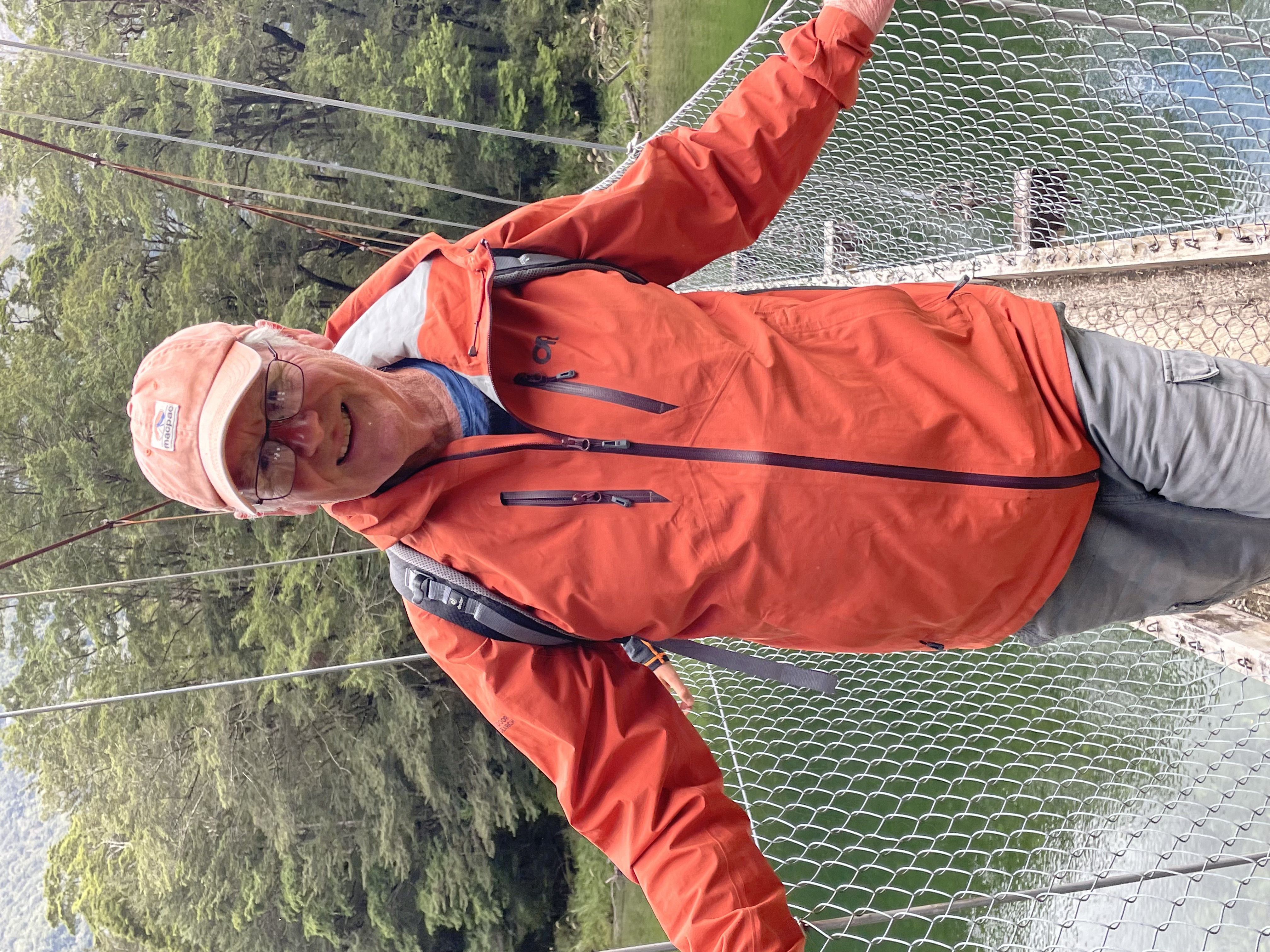
If you’ve ever wandered through the lush native bush of Moonshine Valley or Tutukiwi PNCC Reserve, chances are you’ve walked in the footsteps of Barry — a quiet champion of ecological restoration whose dedication spans over three decades.
Barry’s love for nature runs deep. With an academic background in molecular genetics, he’s spent much of his life immersed in understanding and protecting the natural world. When he needed a break from research, he found solace in the bush — tramping through native forests, listening to birdsong, and reconnecting with the land.
Since settling in Aokautere in 1994, Barry has become the heart and soul of restoration efforts in Moonshine Valley and Tutukiwi Reserve — two precious remnants of podocarp forest once dominant in the Manawatū. These reserves are home to towering rimu, kahikatea, totara, hīnau, and tawa trees, as well as the special native orchid, Tutukiwi/greenhood which Barry discovered and PNCC then chose to use for the name of the biggest reserve in the valley.
Barry’s work has been transformative. Through persistent weed control and predator trapping, he’s helped eliminate several invasive species like old man’s beard and blackberry, allowing native flora to regenerate naturally. His efforts have also helped protect native wildlife — from kākahi and kōkopu in the stream to increased birdlife thanks to community trapping initiatives.
He’s not just working alone. Barry has a group of volunteers who help with a monthly working bee. He has also collaborated with private landowners, PNCC, welcomed support from the Massey Conservation Group, and created an iNaturalist project to track the rich biodiversity of the area — from plants and fungi to birds and freshwater species.
But the journey hasn’t been easy. Floods in 2024 caused major slips and erosion, making access difficult. And like many community projects, finding volunteers is a challenge. “People often say, ‘It’s great what you’re doing,’ but not everyone wants to get stuck into the weeding,” Barry says with a smile. Still, he believes in the power of connection — to nature and to each other.
“It’s a great social environment,” he says. “Getting out into the bush helps keep life in balance. It’s good for your mental health — getting away from your phone and into the forest. You only really get to know the land when you’re out there.”
Barry’s message to others is simple: “Get your gummies on and get out and do it.” Whether it’s pulling weeds, planting trees, or simply appreciating the beauty of native bush, every little bit helps.
So here’s to Barry — a true kaitiaki of the land, whose quiet persistence is restoring the forest, one step at a time. May his story inspire others to join the journey and help protect the natural treasures in our own backyard.
Observations documented on iNaturalist NZ
Get Involved
Working bee Tutukiwi Reserve
A working bee is held the first Friday of every month at Tutukiwi Reserve. Volunteers meet in the reserve carpark in Moonshine Valley at 9 am. Work is varied but mostly involves weed pest control within the reserve. Anyone is welcome to join. The next working bee will be held on Friday 5th September. If you are interested contact Barry Scott on 021 070 4848 or email barryscott10@icloud.com
